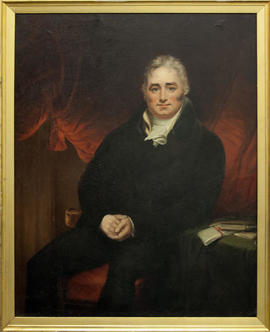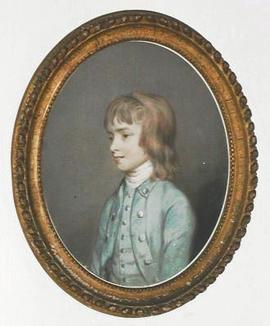- GB-2014-WSA-09330
- Pessoa singular
- 1760-1816
HOBART, ROBERT, 4TH EARL OF BUCKINGHAMSHIRE, second son of George Hobart, 3rd Earl of Buckinghamshire (qv); b. 6 May 1760; adm. 13 Jun 1770; left 1776; Lieut., 7th Foot 23 Jul 1778; Capt., 30th Foot 25 Jul 1778; 5th Dragoons 17 Nov 1780; Maj., 18th Dragoons 15 Aug 1783; retd. 2 Nov 1784; served in American war; ADC to Duke of Rutland, Lord Lieut. Ireland, 1784-7, and to Marquis of Buckingham, Lord Lieut. Ireland, 1787-9; MP (I) Portarlington 1784-90, Armagh 1790-7; MP Bramber 15 Dec 1788-90, Lincoln 1790-6; Chief Secretary for Ireland Apr 1789 – Dec 1793; Privy Councillor (I) 21 Apr 1789; Privy Councillor (GB) 1 May 1793; Governor of Madras Oct 1793- Aug 1798, arriving in India summer 1794; summoned to House of Lords in father’s barony as Lord Hobart 30 Nov 1798; Secretary of State for War and the Colonies Mar 1801- Jan 1805; succeeded father as 4th Earl of Buckinghamshire 14 Oct 1804; Chancellor, Duchy of Lancaster Jan –Jul 1805; Joint Postmaster General Feb 1806- May 1807; President, Board of Control, from 4 Apr 1812 (also Chancellor, Duchy of Lancaster, May – Jun 1812); m. 1st, 4 Jan 1792 Margaretta, widow of Thomas Adderley MP, Innishannon, co. Cork (and mother of Edward Hale Adderley, qv), and dau. of Edmund Bourke, Corry, co. Mayo; m. 2nd, 1 Jun 1799 Hon. Eleanor Agnes Eden, dau. of William Eden, 1st Baron Auckland PC, politician and diplomat; d. from effects of a fall in St. James’s Park 4 Feb 1816. DNB.


